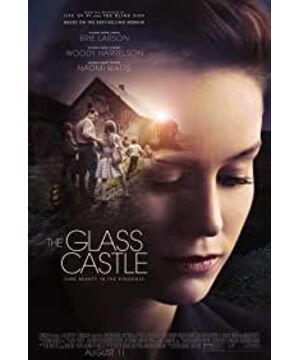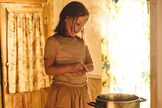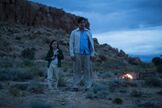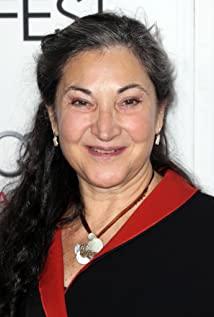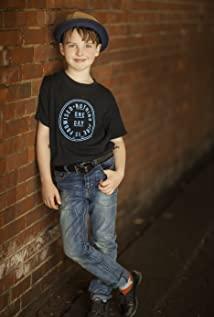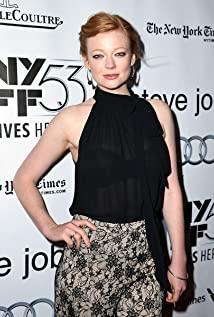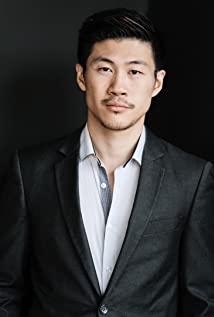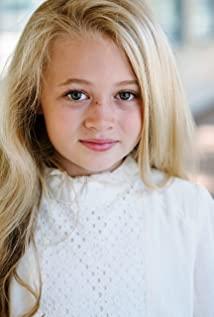) "The Glass Castle" published by the famous American journalist Janet Walls in 2005 is a thought-provoking personal memoir that combines Walls with The brothers and sisters' unique and difficult growing up experience was announced to the public, and this film of the same name was adapted from this memoir. Walls’s other biographical novel "Semi-Tame Horse" is based on the rich life experience of his grandmother. It can be described as ups and downs and fascinating. "The Horse" can also be light and shadow.
Family pain is the original intention and driving force of many people with literary talents. It is probably a kind of necessary catharsis to write when people are suffering to the point where they cannot be added. It is an easy-to-find relief outlet. After all, "We We all feel miserable. There are messes in our lives. Life is very puzzling. I don’t have the answer, but I know that if you write it down, things will get better.” (From the film Detachment ")
How unfortunate is it to have a pair of unreliable parents who have a utopian thinking model and always insist on mavericks, or what a unique growth experience will it have? Janet Walls and the film whispered to readers or viewers, there is no lack of blood, tears, pain, and of course a little bit of joy.
The adaptation of the film should be considered to be more respectful of the original style, and there are too many films that reflect family injuries. Among them, there are many outstanding ones. How to make the film fit the audience to the maximum extent, in addition to the special features of each unfortunate family, There must also be some commonalities. The commonalities in this film are about the fact that people have been fooled by their parents who they trust in their childhood, and they have all had the experience of making empty wishes. Except for this part, the film is the most touching. The place is its characteristic-the children of the Walls family helped themselves after being disappointed with their parents. Of course, having such independent thinking and self-help ability is also thanks to unreliable parents.
In the film, the adult Janet has a line: "We are never a family, we are a nightmare." When I was young, the family lived in no fixed place and wandered around. At that time, for children, such a life that was not in line with the mainstream of society. The method is fresh, exciting and interesting, not to mention the father can always find a reason for doing so, and verbally portray a beautiful vision. However, this pair of parents who belong to the temperament cannot guarantee the children's safety and growth. For example, young Janet was burned by fire while cooking, and when she died and was not adequately treated and cultivated, He was stolen from the hospital by his father, and the family fled. Another example is that the four brothers and sisters who have grown up on the walls have no food. They can only eat butter and sugar to satisfy their hunger... They
all say "family is everyone's castle", but not every castle is strong, warm and reliable. My father promised He built a glass castle for his family, and designed the blueprints in a pretentious way. The children lay the foundation. However, it seemed like an unfocused dream. The glass castle was never built, and the alcoholic father failed to stop drinking. Facing such a father, Janet’s heart is complicated. The film also focused on showing this. Janet trusted her father but was always disappointed. But seeing her father’s severely injured arm, she couldn’t help but care about him. With the increase of age and experience, the relationship between Janet and her father has also changed. When she learned that her father was seriously ill, Janet, who had struggled to become a social elite, returned to her nature and ran barefoot to the temporary residence of her parents who were wandering. . Maria Montessori once said: "Many imprints on children’s hearts are unintentionally branded by adults." The film tries to show that the father’s choice of such a way of life is not unrelated to the shadow of childhood. The behavior continues this imprint...
Chateaubriand said: "Don't limit your children to your knowledge." Such casual and free-loving parents seem to be a double-edged sword. They restrict and let their children go. Of course, they are not useless. They do not restrain their children’s imagination. Some of the encouragement also promotes their children’s development. For example, when parents send books to children as gifts, Janet gave Janet a blank notebook. The mother said I hope Jenny writes her own book. On the other hand, his father's extreme and self-righteous thoughts, words and deeds made him prevent his children from getting involved in society to lead a normal life. This restriction is one of the main reasons why his relationship with Janet is at a deadlock.
Janet has always wanted to live a life different from her parents, but at a critical moment, she realized that she had also benefited from this lifestyle. In fact, her father was still conscious: "I spent my whole life. I chased the devil in the wilderness, but I didn’t realize that the devil was in my body all the time. I lived in the shadow of fearing myself all my life. It’s sad to think about it.”
Woody Harrison’s utopian father is quite effective. , And Chandler Hyde, who plays the young Janet, is better, and Ella Anderson, who plays the young Janet, is also good. The big Janet is played by the actress Brie Larson, although not every scene is in place. But the key scenes are still convincing.
The film does not seem to have any plans to go further, which also makes it a little bit far away from a truly good work.
(Magazine manuscript)
View more about The Glass Castle reviews


